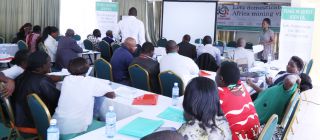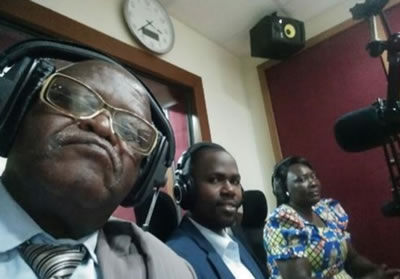Inclusivity
Gender & Extractives
Generally, the extractive sector is largely perceived as a masculine occupation. Women’s participation in the sector is much lower than in other sectors of the economy. Only 9.4% of those employed in the extractive sector are women, while overall women constitute 25% of the wage employment force. The majority of women employed occupy low-skilled positions as well as positions at the lower end of the value chain. While women’s participation in the large-scale extractive project is very low, women are in the majority in artisanal and small-scale mining (ASM), accounting for between 40-100% of the workforce.
Women’s involvement in ASM is very risky in terms of health hazards as well as regular income. Moreover, women engaged in ASM have very limited access to lucrative markets as well as to affordable capital that would allow them to buy equipment to add value to their produce. Research also suggests that women are more likely to be exposed to the negative impacts (environmentally & socially) of the sector. In the compensation & resettlement/relocation processes in the extractives sector, women are highly disadvantaged due to lack of land security tenure and control of other productive assets.

HMK will seek to enhance the capacity of women to participate in decision-making processes at the local and national levels and advocate for gender-responsive policies, compensation, benefit sharing, and resettlement and relocation mechanisms. Women in and around mining areas will be supported to develop an entrepreneurial culture and ‘utilize’ the economic opportunities availed in the sector.
2017

In 2017, Haki Madini made significant strides in making the mining sector a place where both men and women can thrive and benefit in the extractive sector. Gender mainstreaming is a pillar that is integrated into the goal of all the partners within Haki Madini. Groots Kenya were in the forefront of championing women since the onset of their organization. In the beginning of their project, women were discriminated in the mining sites due to cultural beliefs. After consistent engagements and dialogues with men and stakeholders, these discriminations after much-needed addressing have seen a significant decrease.
Groots Kenya observed that after the formation of groups, women have become more active and now a challenge is getting more men to participate. This is due to a lack of commitment from them. Efforts have been realized in trying to understand their challenges and proactive solutions have been put in place to make them comfortable in the groups. One of the solutions to this challenge is holding meetings at the mining sites.
However, they are still on the frontline in mobilizing and building the capacity of women entrepreneurs because in as much as they address issues from both genders women’s income is still at an all-time low. They are still encouraging women to optimize their potential in the
sector.
GROOTS Kenya has ensured that women are involved in decision-making processes. For example, during the elections of artisanal and small-scale miners into the Artisanal mining committee at the county level, 2 out of the 3 members elected were women. Women also got a chance to participate in the County Integrated Development Plan (CIDP) development process by ensuring that the issues that affect them like health, and environment, are captured in the CIDP.
The National Council of Churches of Kenya (NCCK) Gender mainstreaming was done through the deliberate mobilization of men, women and youth participants in all the project forums. NCCK made contact with the SILK women groups who participated in group-level meetings. In partnership with GROOTS Kenya, 6 women from Migori and Taita-Taveta were trained on women's entrepreneurship. Assessments made during group-level meetings revealed gaps on bookkeeping and leadership which will be strengthened in 2018. With lessons learnt from a Joint monitoring visit in Kakamega, plans will be made for an exchange-learning visit for a few women to learn entrepreneurship skills.
NCCK will strengthen targeted capacity building towards gender issues that have arisen in the course of the two years of implementation also strengthen targeted capacity building towards gender issues that have arisen in the course of the two years of implementation.

Caritas Kitui set up platforms that deliberately targeted membership from both women and men. The project in the reporting year offered opportunities for both women and men, especially with a focus on women to participate in: radio programs, attend other Haki Madini meetings outside Kitui, to also take part in decision-making levels of the platform through leadership roles. They were also given opportunities for various HMK and partner capacity-building opportunities.
In the radio program, a woman from Kakamega (Groots) was invited to inspire the women in Kitui on how they can strengthen their participation and engagement in the mining agenda.
In one of the short video clips of a community member giving brief story about the change as a result of the Madini Yetu project, one of the women stated:” As a woman, women were left out completely on mining issues. Women also did not know their rights and men really took advantage of this. The men could sell land without engaging their spouse thus bringing conflict and affecting children schooling. But now through Madini Yetu Wajibu Wetu we are now realizing our rights, our responsibilities. The projects have also enabled women to know the minerals that exist, their importance, use, effects and benefits and more so how to use those benefits to improve our livelihoods.”
